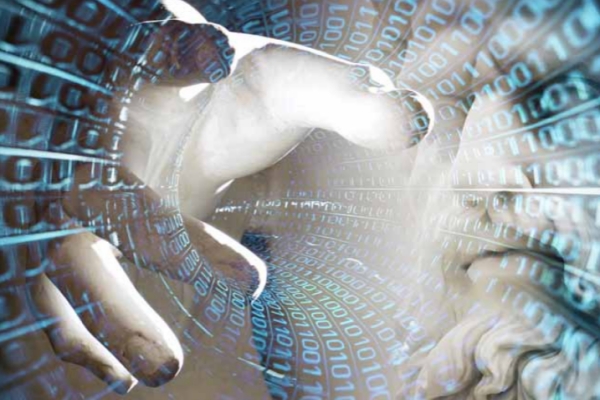Where is YOUR Digital Culture Heritage?
Here is an important charter that I missed last year.
In case you missed it, one of the most important lessons George Orwell gave in 1984 is that “Who controls the past controls the future. Who controls the present controls the past”.
In the present age, this explains why it is absolutely crucial to have, build, share and preserve a Digital Culture Heritage.

What is Digital Culture Heritage?
Digital Cultural Heritage is “the ecosystem of either born-digital or digitalized processes, entities, virtual phenomena which:"
- having been validated and certified, are transferable, reusable, relevant, readable, reliable and resilient over space and time
- constitute evidence, demonstration and significant expression of the evolutionary processes identifying and connoting each community, socio-cultural context, simple or complex ecosystem of the Digital Era, thus assuming the function of historical memory and source of knowledge for future generations
The entities that should identify and be part of it have been identified and classified on three levels:
- Born Digital Heritage: born-digital entities whose representations record processes, methods and techniques employed by contemporary communities for their co-creation and which must be safeguarded, re-used and preserved over time as potential historical memory and source of knowledge for future generations;
- Digital FOR Cultural Heritage: digitization processes, methods and techniques aimed at the co-creation of digital entities whose representations reproduce the tangible and intangible cultural heritage, integrating into their content images and descriptive metadata (digital libraries, virtual museums, demo-ethno-anthropological databases, etc.);
- Digital AS Cultural Heritage: digital entities produced by the digitization and digitalization of tangible and intangible entities (including cultural ones), whose representations record approaches, processes, methods and techniques identifying their evolution over time, and which must be safeguarded, re-used, preserved, and valorised as potential historical memory and source of knowledge for future generations
Go to the source!
The text of the previous paragraph is not mine. Those sentences are just some key quotes of a very important document published in July 2019, called the Pietrelcina Charter on Education to Digital Cultural Heritage (scroll down that page to reach the full English version).
In addition to the charter, here is my take, from fifteen years ago but, if I can say so myself absolutely current, on why Digital Cultural Heritage is fundamental for your quality of life, and human rights: File formats favor (or hamper) innovation, active citizenship and really free markets.
(This post was drafted in April 2020, but only put online in August, because… my coronavirus reports, of course)
Who writes this, why, and how to help
I am Marco Fioretti, tech writer and aspiring polymath doing human-digital research and popularization.
I do it because YOUR civil rights and the quality of YOUR life depend every year more on how software is used AROUND you.
To this end, I have already shared more than a million words on this blog, without any paywall or user tracking, and am sharing the next million through a newsletter, also without any paywall.
The more direct support I get, the more I can continue to inform for free parents, teachers, decision makers, and everybody else who should know more stuff like this. You can support me with paid subscriptions to my newsletter, donations via PayPal (mfioretti@nexaima.net) or LiberaPay, or in any of the other ways listed here.THANKS for your support!